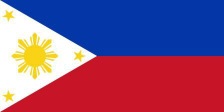Changing Lives: One Child at a Time!
During this current fiscal year (starting July 1, 2009), we have been fortunate to make the following shipments of humanitarian aid:
| Country | Project | Description | Value |
| Philippines | MOPSIS | Toys | $100,000 (est) |
| MOPSIS | Medicines | $1,271,423 | |
| MOPSIS | Tents, shoes, etc. | $51,185 |
|
| Guatemala | Esperanza de Vita | Medical & Clothing | $196,946 |
| Malawi | Namikango Maternity Hospital | Ambulance and Medical supplies | $171,206 |
Philippines


The
Filipino infrastructure is also impeded by transportation between islands. While most cities have airports suitable for the jet age, its thousands of islands and impoverished people combine to make water transport extremely common, and often quite dangerous. Lack of financing and weak government policies combine with corruption to make bringing the
For almost 20 years, ACHF’s main partner for the delivery of locally needed health, nutritional and educational supplies has been the Naga-based Compassionate Franciscan Sisters of the Poor (popularly known as MOPSIS) a religious order very much in the heart and model of Mother Theresa’s work in India. Founded by Mother Joan Claire Chin Loi in
ACHF’s three shipments this year to MOPSIS have a total value of just under $1.5 million, and include medicines and emergency disaster supplies (sleeping bags, shoes, tents, etc.) for typhoon victims, and were distributed by MOPSIS itself, as well as various orphanages and day care centers, Bicol Medical Center, Naga City Hospital, Pacol Elementary School, Sorsogon Elementary School, Jummels School of Learning, the Daughters of Charity, the Boy Scouts and the Naga City Council. Additional supplies were distributed by MOPSIS to dump dwellers at Camarines Sur and in the outskirts of

Guatemala


Guatemala

ACHF’s focus this year has been on Ministeria Esperanza de Vida, in Rio Hondo, Zacapa. The ministry serves a wide range of the population, including an elder home, a children’s home and a school attended by over 350 children. Also important to ACHF’s vision, MEdV helps other local organizations assist children living in their own unique facilities.
During our current fiscal year, ACHF shipped $196,549 of clothing, medical and educational supplies, ranging from first aid spray, cough syrup, hygiene supplies, furniture and clothing, to diapers, bandages and syringes.
Malawi


The
This year, ACHF is helping the Namikango Maternity Hospital in Thondwe. Well know to ACHF staff, the hospital is part of the “Malawi Project” and has been instrumental in helping upgrade delivery of medical care in the entire country. The Hospital is also deeply involved in the mechanization of agriculture, where only hand tools had been used for centuries, as well as school textbooks. The Hospital stores goods we ship in its central warehouse, where other organizations send their vehicles to pick up materials they need. ACHF’s contributions this year include an equipped ambulance and medical supplies valued at $171,206.
